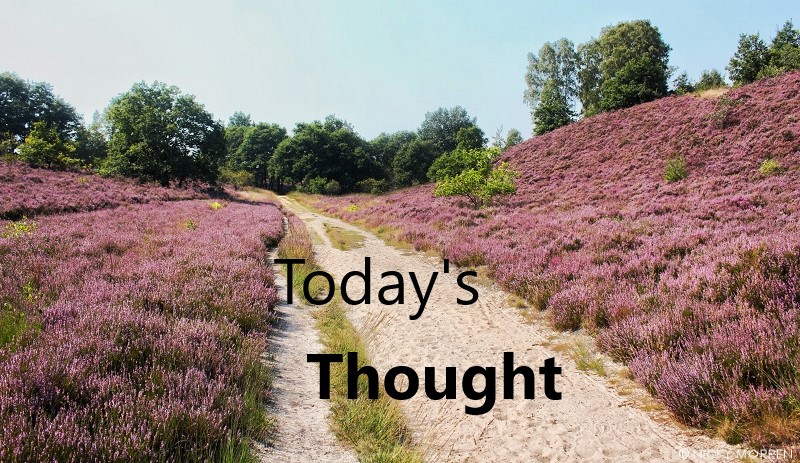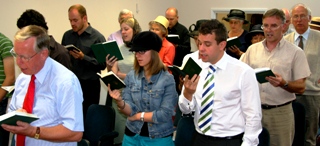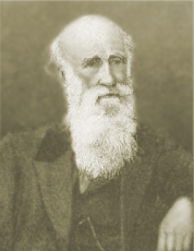Paul Anderson writes: “Aristotle asked how we as political animals could create and design institutions which assure survival with ‘some measure of the good life in it’. Although the scope of Aristotle’s question was that of the city, the question of institutional design is acutely relevant to efforts to arrest global resource degradation. ”
“If environmental problems arise from absent markets then the solution is to create markets for natural resources so that peoples’ preferences can be registered in market transactions. Where markets do exist, they may be corrected, for example, by taxes or charges. ”
- From the neoclassical economics perspective, the environment is only recognised as being of value to the extent that people are willing to pay for its goods and services.
the environment but the market itself that is to be sustained through acts of substitution. - market instruments and norms need to be removed from areas for which they are simply not appropriate.
- valuations of the poor, including valuation of their health and own life, are reduced to a fraction of that of the rich
- reduction of people’s values to exchange value ensures that what people most care about is disregarded.
Politics of power and greed did bring a new sort of capitalism and a new contradicting form of communism (in China). today we can find more Marxist economists who try to explain politics as subordinated to economy, while others seem to see no harm to use the people of the community to work for one or another business, because the country has to grow and stand in the world as a strong power. That one person, being part of the Party, becomes so much richer than the workers is a nice token by-product of being party member in the high echelons. Others can find themselves happy by considering politics as mere sub-spheres of society. are not the plebs, the peasants and those who refuse to give their time to the communist party as with beasts or plants, elements to be used to make the communist country great? And the non-communist countries do not mind that those communist countries use their inhabitants as slaves, because it gives great opportunities for so many companies to have their goods being produced in China very cheap and to sell them for a high price in the west, because their customers are mad to show off with a brand name. so why not make a lot of money on both sides?
Did not he whole world agree that each individual has the right to make as much profit or generate as much income as they could? And now we seem to complain!
For capitalism to be able to work, some do find that government should not have any control at all over the markets. In any case the Western capitalist system perhaps would have loved a laissez faire attitude and would have loved to give a lot of importance to propertyrights, but it betrayed itself. Because those in power in politics have become those in power in economics or have become the slaves of the banking world. The Ma
nagers of the Capitalist Core Business, the Banks, do own the world and give the rules to go by to the politicians.
Egoism and greed got the power over the show off attitude of the previous ten years. Wealth became more and more glamorized. Media convinced people they “needed” certain products in order to be who they aspired to be. The idea grew of taking something for oneself before an other one would take it. More people started to brazen it out and many thought why should I not do it when an other one is able to get through it. And when more companies gave those who made a blunder some benefits, heaven gates were opened to be the best boaster and to take the greatest braggart in own ranks before an other went away with it.
Today the different markets are not free at all, but the importance has come to give the people the idea that they are free and all can have all the luxury if they want. The media are the channel to create the dream-world in the brains of those who have to work for many hours at wages going to 1% of what the CEO’s earn, and then they may be happy that they can get some work.
Money was primarily a standardized medium of exchange, and final means of payment, that served to measure the value of all goods and commodities in a standard of value. Already for many years the symbol of value has become the car, the exotic voyages, and the way people can boast with all the material they are able to ‘retrieve’ from their efforts.
Because people were not so sure about the future and prefer to put some savings aside, an ideal market place was created to use that amount of savings to take the risks for going to the most of gains, when in case something would go wrong , the savers would be left holding the ‘bagby’. The money market was assured by the politicians that the country and the economical system had to grow, and they would not be to blame if something went wrong, because then it would be the fault of the ‘crisis’, and all people should have to understand that. Are the consumers not to be rational about their long-term income?
Media stimulated the population to live better than the neighbour. Everything had to be bigger, better and greater. Politicians were right to tell the people that they had to consume, because without consumption capitalism can not survive. That is the problem we are encountering in many countries today. The politicians and the media made the people so afraid to consume, that they keep all their savings in cash. Instead of spending in worthwhile materials enabling to live easier, the consumers keep still preferring to hand out the money to the gadgets to show off and to the talk of the day. Youngsters do not have enough money, but you can see them chatting at the cellphones the whole day, giving the Telephone companies enough earnings at too much a high price.
Today it is still so that well-being is determined by things people can consume. But over the years there has come a discrepancy in the way people are able to consume and in what they consume. By the media many households were pressed to go living beyond their means. For the market their lay a big potential to lure those people in systems which could bind them for several years to their institution. With so much ease, in many countries, we could see that young people could get, without any problem, a loan. Many youngsters were lured and found it great to receive a credit which could give them more ‘status’. Though there was nobody to pint with the finger that they would not be able to pay everything back in time.
Many went living on the boarder of a two side cutting sword. Both partners working many hours, to be able to get the money to pay back their mortgage, could not spend enough time at their relation or at their family, so many lost the reason t stay together. The partnership breaking off brought them in a spiral of double money spending. Lawyers, insurance companies and financial institution not unhappy for the situation which brought them some extra income.
The further people got separated from each other and had to do everything to keep ‘their’ children for themselves they found they had to buy more attention from those kinds by giving their more materialistic goods. Materialism had to have more power than emotion. To be able to stand on a good platform and to present a good picture to others, they believed that they had to spend more money. Getting behind in their ability to purchase goods and services – in relation to others – the more pressure there came onto them for borrowing money.
Independence of the goods was ideal for the market, the bosses thought. But the gambling of the many parties and all the lies on all sites, brought so much corruptness that nobody any more seemed to find the strait line of correctness and of good ethics.
The bomb had to burst. First the house market. Next the the increase in inequality meant that household had worked longer hours, saved less, and borrowed more in order to maintain a social status, but this at the cost of their private social life. Frustration and angst got the backyard of the even more greedy banks, who could promise a money tree and a better position in the world by buying other banks and other businesses. But for sure, they had to receive money from their clients. And those clients believe all the fairy tales and bought more shares.
The top people in the banks and in the politics had too much to share and found it much more important to be sure they could earn so many % more the next year. Instead of adding jobs the politicians did try to shake hands with the multinationals. They did not dare to ask for assurances that people would be able to work for many years onwards. Instead, when the businesses got the bite, they took care to get rid of so many workers, because of ‘reorganisation’. The politicians were more interested in the well-being of the business than in those who came to live on edge about the stability of their job.
No politician dared to ask for loyalty of the business to the funding country, but damn the one labourer who did not ‘want to be loyal’ to the firm!
For the politicians seeking political gain was the first priority, the next one was to be sure their pockets would be filled the next term.
Yes, there were several exceptions. But they did not have the courage and to stand up against those politicians who agreed to let the swindlers go free with an extra bonus. And would the people not forget easily when the name of those institutions would be changed overnight? Who would still remember ASLK, or Fortis, Bacop, Gemeentekrediet or Dexia?
Belgium, Greece, Spain and the United States of America are beautiful examples how much there is an urgent need for political change in the way this crisis is being handled. In Europe we can see how many people like to minimise the condition of the worker in our society. In Europe and in the States we can see that many politicians and CEO‘ do not have any shame for not recognising the degree to which peoples’ needs are being ignored while political points are made.
Instead of trying the economy to work again, by having the money rolling again in a normal way everything got so manipulated that nobody sees clarity. The whole economy seems to drawn in the mist.
The gang of swindlers are protected because the politicians are more afraid of what the money institution would take as a next step. It takes courage for the politician who dares to stand up and to take very unpopular measures by the population as well as by the big businesses. Priorities should also be brought forward to protect the population against fraudulent corporations and against those companies who want to make more and more profit without taking in account the quality of the worker his life.
We have come into a time in which it is not justifiable any more to have a difference of 1 to 100 in wages.
The greediness of the states, over taxing the people and the companies made the workforce in Belgium and other countries to expensive. By suffocating the workers and the small enterprises the state threatens not only the enterprise, but also the blooming economy. By bringing in the Tobin tax and taking away all the incentive for small families to invest in shares not enough civilians are going to take the risks in an increasing inflation and depression climate. When the people can only pay extra taxes on the gains of their shares or bonds but can not deduct the losses they made with certain shares, than they are not going to invest any more in the risks. As such the enterprises shall not be able to get cheaper money than this of the banks who are not willing to give loans now.
At them moment we have seen that savers and investors have been penalised. Those who misused the money from others got rewarded.
No individual, either as a person or a company, can manage existential risk by themselves. That risk needs to be shared and mitigated otherwise the risk is not accepted. There would be no enterprise or innovation – the risks of failure too great. That is why there is a role for both private and public sectors. It is governments who have to provide fertile ground and the means through which people can express their social obligations and pool their risks.
+
Short version of: Economie en degradatie
Other Dutch related articles:
- Belgische Beurswaakhond eindelijk wakker geschoten
- Schaamte, schaamteloosheid en hebzucht
- Dexia de Schaamte voorbij
- De politicus en schaamte
+++
Related articles
- Read more about:Valuing Nature: Democracy or economics? (energybulletin.net)
explaining why sustainability cannot be attained by putting a market value on natural capital and the economic “commons”. - Escaping Economyland (almanac2010.wordpress.com)
Economyland is a place on the flat world of Reductio Ad Absurdum where the Economical Bestiary’s mythical beasts run wild in a free state of nature.
+
Pius conservatives are fond of accusing science of being reductionist, of reducing the divinely-wrought human being and the world of nature to an oversimplified, materialistic machine. - Mass privatization put former communist countries on road to bankruptcy, corruption (eurekalert.org)
Devised principally by western economists, mass privatization was a radical policy to rapidly privatize large parts of the economies of countries such as Russia during the early 1990s. The policy was pushed heavily by the International Monetary Fund, the World Bank, and the European Bank for Reconstruction and Development (EBRD). Its aim was to guarantee a swift transition to capitalism, before Soviet sympathizers could seize back the reins of power.Instead of the predicted economic boom, what followed in many ex-Communist countries was a severe recession, on par with the Great Depression of the United States and Europe in the 1930s. The reasons for the economic collapse and skyrocketing poverty in eastern Europe, however, have never been fully understood. Nor have researchers been able to explain why this happened in some countries, like Russia, but not in others, such as Estonia. - One Nation Under Surveillance. (afteramerica.wordpress.com)
America prides itself in being called “the land of the free.” But, what, exactly, does it mean to be free? Does it mean owning a car and having a job? People in communist countries own a car and have a job. Does it mean going to a mall to shop. People in communist countries go to a mall to shop. Does it mean going to an amusement park to recreate? People in communist countries go to amusement parks. Does it mean going to the polls and voting? People in communist countries go to the polls and vote. In reality, many, if not most, of the things that most Americans would identify as marks of freedom are commonly practiced in the most oppressed communist countries of the world. So, what does it mean to be free?
+
The right to be secure in your homes, papers, effects, etc., is also an essential element of liberty. But this right has been largely expunged in the United States–especially since 9/11/01. - The facts are clear. This cruel austerity experiment has failed | Will Hutton (guardian.co.uk)
The markets are now betting not just on the break-up of the euro but on the arrival of a new economic dark age. The world economy is edging nearer to the abyss, and policymakers, none more than in Britain, are paralysed by the stupidities of their home-spun economics.
+
We live in the aftermath of one of the biggest financial and intellectual mistakes ever made. For a generation the world, with the London/New York financial axis at its heart, surrendered to the specious theory that lending and financial contracts could grow many times faster than the underlying economy. There was a blind belief that in a free market banks could not make mistakes. Free markets didn’t make mistakes – only clumsy bureaucratic states made economic mistakes. Or so they said. Financial alchemists, guided by the maxims of free market fundamentalism, could make no such errors. - Did Ikea hire political prisoners in Communist countries to make furniture? (macleans.ca)
Ikea is being accused of using political prisoners in the former East Germany and other Communist countries to make some of its furniture in the 1970s and 1980s.
+
Ikea has said it is taking all of the allegations of using forced labour “very seriously” and attempting to speak with people who were with the company 25 years ago. Ikea has also stressed that, since 2000, it has required suppliers to meet a strict code of conduct.
- People Who Are Not Left Alone Are Not Free (newswithviews.com)
what, exactly, does it mean to be free? Does it mean owning a car and having a job? People in communist countries own a car and have a job. Does it mean going to a mall to shop. People in communist countries go to a mall to shop. Does it mean going to an amusement park to recreate? People in communist countries go to amusement parks. Does it mean going to the polls and voting? People in communist countries go to the polls and vote. In reality, many, if not most, of the things that most Americans would identify as marks of freedom are commonly practiced in the most oppressed communist countries of the world. So, what does it mean to be free?
+
perhaps the most essential element of liberty is the right to be left alone, the right to privacy, the understanding that a man’s home is his castle, the right of free people to live their lives without Big Brother looking over their shoulder. Without the right to be left alone, liberty does not exist! And ladies and gentlemen, it is this freedom that is under attack the most in this country. - Eastern Europe’s neoliberal disaster provides a warning for the Arab spring | Neil Clark (guardian.co.uk)
In a recent study entitled Mass Privatisation, State Capacity, and Economic Growth in Post-Communist Countries, published in American Sociological Review, sociologists from the universities of Cambridge and Harvard claim to have established a “direct link” between the mass privatisation programmes followed by around half the countries of the region – enthusiastically urged upon them by western economists and western financial institutions – and the “economic failure and corruption that followed”. The more closely the countries followed western advice, and the more they privatised, the worse things became.
+
“The most pressing economic problem for many of the Arab spring countries and the region is that it has been unable to develop a private sector that is independent, competitive and integrated with global markets,” writes the bank’s president, Thomas Mirow. - Connecting vs. connecting the dots (clarespark.com)
although the communist movement was messianic and directed from Moscow, it was never a substantial threat to the American consensus; indeed, Communism did itself in through such errors as the blunder in running Henry Wallace for president in the Progressive Party campaign of 1948, preceded of course, by the zig-zagging moves of the late 1920s-early1930s, as it veered against the New Deal (seen as “social fascism”), followed by the Popular Front of 1935 onward, then the shock of the Nazi-Soviet Pact in 1939 (that killed the Popular Front), then after the Nazi invasion of the Soviet Union, shifting back to Popular Front politics, only to be sunk once again by the revelations of Khrushchev in 1956. Klehr and Haynes see the years from 1960-1990 as “twilight years.” - China is the phony communist…. What disgusting cows (oreobronson.wordpress.com)
People other than just high government officials can drive cars. Chinese people can do business and store up wealth for themselves. Peasants can go to the university now; finding food to eat is no longer such a grave concern. Just around the corner from where Chairman Mao lies in State, the American restaurant chain McDonald’s is full of Chinese people enjoying greasy food and a cool environment. Inside homes, people can watch Western movies on DVD and even occasionally on state owned television. The world is just a mouse click away for the millions of Chinese people who have access to the Internet. Friends and family are no longer afraid of discussing politics with each other. It is even acceptable to criticize the government behind closed doors. All this is happening as Chairman Mao sleeps peacefully at Tiananmen Square.
+
As of just a few years ago, private property rights have been greatly enhanced in China, and Chinese people can now be more secure that their land will not be taken away from them. Let us not forget about the heavy international investment that has been permitted in China which has played a major role in fueling this developing and booming economy. As a result, there are very rich people and very poor people in China as well as an emerging middle class. Chinese citizens, who always carried a good sense for business but were restricted from entrepreneurship in the past have now been more free to take risks and build successful companies. Thus capitalism has transformed the Chinese economy and changed people’s lives forever. - Social Inequality and the Great Contraction (econfix.wordpress.com)
Till van Treeck in the Guardian talks about higher inequality and easy access to credit being a reason for consumers to borrow beyond their means. There is mention of Rgahuram Rajan’s book “Fault Lines” which argues that lower and middle-class consumers in the US have saved less and borrowed more in order to increase their real incomes. This obviously kept aggregate demand and employment high but meant there was a huge amount of debt which contributed to the financial crisis of 2009-10.
































 Biblestudents – Bijbelstudenten
Biblestudents – Bijbelstudenten 0 + Bloggers for Peace
0 + Bloggers for Peace Free Christadelphian Ecclesia
Free Christadelphian Ecclesia Hoop tot Leven – Redding in Christus
Hoop tot Leven – Redding in Christus Vrije Broeders in Christus (Free Flemish Christadelphians on Wordpress)
Vrije Broeders in Christus (Free Flemish Christadelphians on Wordpress)















Pingback: Capitalism downfall | Marcus' s Space
Pingback: Fear and protection « Christadelphians : Belgian Ecclesia Brussel – Leuven
Pingback: Do we have to be an anarchist to react | Marcus' s Space
Pingback: Migrants to the West #8 Welbeing | Marcus' s Space
Pingback: Spring in sight | From guestwriters
Pingback: Inequality, Injustice, Sustainability and the Free World Charter | Marcus' s Space
Pingback: Of old and new ideas to sustain power and to feel good by loving to be connected and worship something | From guestwriters
Pingback: A world with or without religion | Stepping Toes
Pingback: Material wealth, Submission and Heaven on earth | From guestwriters
Pingback: How willing are people to stand up for their values and beliefs – Some View on the World
Pingback: About Human Nature – Some View on the World